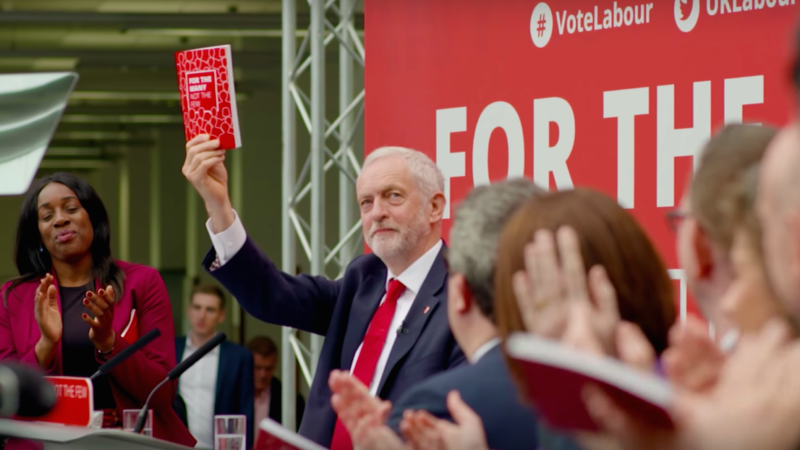
Labour MPs have been given two weeks to decide whether they want to be a parliamentary candidate at the next election and to inform the party. After officers of Labour’s national executive committee (NEC) met and agreed the process for reselection yesterday, each sitting member received an email confirming that the first stage – collating their intentions – was underway. They were given a deadline of July 8th for returning the form. Jim Fitzpatrick, who represents a majority Remain seat but wants to vote for a Brexit deal, has already tweeted a photo of his completed form: to little surprise, he is not standing.
Several MPs were incensed by the short timeframe, as they are usually given two or three months’ notice. There is apparently concern that it could affect the chances of forcing an early election through a vote of no confidence, as deselected MPs would have less incentive to support such a move. But in order for an election to take place on October 24th, before our exit date, the Commons must hold the confidence vote no later than September 3rd – the first day back from summer recess. Local meetings are not held in August, nor usually in September due to conference. This is a highly formal process, and CLP executives (some with meetings before July 8th) will have to negotiate the timetable and other details with region beforehand. All of this means that the next stages of the process will only really kick off in October.
For those who’ve forgotten the details of the updated rules on selections following last year’s conference, I’ll summarise briefly. Campaigners for ‘open selections’ were not successful, which means there is still a trigger ballot process. Under new rules, those sitting MPs seeking to avoid a full selection contest need fewer than one third of party branches or fewer than one third of affiliated branches to indicate that they want a selection to take place. (To quote the 2019 rulebook: “If either one third or more of party branches, or one third or more of affiliated branches, indicate that they wish a selection to take place, a selection shall proceed.”)
This will be an interesting test of the new system, as we’ll find out how low the bar has been set in practice. It will also offer insight into the effectiveness of preparation methods employed by MPs who have been worried about deselection. Some have split up branches into single-ward ones or signed up supportive affiliates. Others have simply taken extra care to attend meetings and engage in good faith with all local members.
How serious is the threat of deselection? We should bear in mind that many of the MPs with cause for concern quit the party earlier this year. Others will retire, like Fitzpatrick. As for the rest, remember: being triggered doesn’t actually mean being deselected. The argument will be made that full selections should be held on principle, not due to the political persuasions of the sitting MP – particularly when it comes to those who were imposed by the NEC in 2017. But the outcome of the selection itself is not predetermined. Unexpected factors may also influence the result: there are suggestions, for instance, that Vicky Foxcroft in Lewisham Deptford has been given a helping hand by the leader’s office with a new promotion.
The recent votes to automatically reselect Greater London Authority members have been revealing. There was much anxiety in City Hall, yet ultimately all sitting AMs were successful in the CLPs section because only a handful of local parties tried to trigger an open contest. And that’s in London, where you would expect (other than Liverpool) that activists to be most likely to opt for full selections.
Under the old system, which set the threshold at 50% of branches, the default was automatic reselection. That is no longer the case. It is not unusual for a CLP to have at least a third of branches that are opposed to the MP or generally more rebellious. However, it seems fair to conclude that although sitting MPs cannot be complacent they don’t have reason to be too despondent either.
In fact, it could be more of a problem for the leadership. I know of one MP who, at the last minute, chose not to defy the Labour whip on a key Brexit vote because the threat of deselection was hammered home to them personally. It is rumoured that there was debate at the top of the party over whether this process should be left until the end of parliament, not kick-started now. Because without that looming threat, it’ll be harder to keep MPs in line – which could be difficult if the next Prime Minister somehow avoids an early election.
Sign up to LabourList’s morning email for everything Labour, every weekday morning.



More from LabourList
‘If Labour is serious about upskilling Britain, it must mobilise local businesses’
Stella Tsantekidou column: ‘What are we to make of the Labour Together scandal?’
‘Unitarisation risks weakening local democracy unless communities are put in the driving seat’